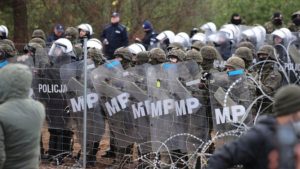Daniel Ortega Wins Reelection in Nicaraguan General Election
On November 7th, 2021 the Nicaraguan General Elections were held. One day later, on November 8th, it was announced that Daniel Ortega had won his fourth consecutive term since first taking office in 2007. Domestic and international onlookers are criticizing the elections as being unfair and undemocratic.
Ortega’s win in the 2021 election comes after a lengthy career in Nicaraguan politics. Early on in his career, Ortega served as a strong Marxist and leader of the Sandinista National Liberation Front (FSLN). Following FSLN’s overthrow of the Somoza dictatorship in 1979, the group instituted a revolutionary government, paving the way for Ortega’s win in the 1985 presidential elections.
Despite the fact that Ortega would go on to lose his bid for reelection in 1990, he remained prominent in Nicaraguan politics, and successfully won the presidential election once again in 2006. As he took office, Ortega began implementing policies with the goal to reduce national hunger and improve literacy rates, but international criticism gradually started to emerge surrounding his restriction of free journalism. Current criticism of Ortega rings eerily similar to criticism he experienced in the early 2000s, due to initiatives undertaken by his administration to stifle political opposition and public dissent.
Ortega’s recent 2021 presidential win comes after a countless number of coercion measures against other viable presidential candidates. At least six plausible presidential candidates were taken into police custody, leaving only five weak challengers on the final ballot to stand against Ortega. In addition to detaining potential presidential candidates, Ortega’s administration also kept 40 opposition members in custody for crimes such as treason. However, many argue that their detainments are just another way to keep them out of the political arena.
While the Nicaragua’s electoral council claims that 65.23% of voters chose to vote during this General Election, independent civil electoral observatory groups such as Urnas Abiertas claim that more than 80% of citizens chose to abstain from voting. In an interview with CNN, one clergy member of the Nicaraguan Catholic Church explained that “going to vote is a joke” and “the people are fearful and locked in their houses”, contradicting the assertions made by the Nicaraguan electoral council.
The international community and Nicaraguan diaspora alike are jointly condemning, and for the majority, flat out rejecting the results of the election. Protests were conducted in cities such as San José and Miami, where dissatisfied anti-Ortega protestors filled the streets to express their grievances with the election results and process. World leaders in the United Kingdom, United States, and European Union echoed similar sentiments of those of the protestors, releasing statements that challenged the legitimacy and transparency of the election.
United States’ President Joe Biden released a statement stating that “what Nicaraguan President Daniel Ortega and his wife, Vice President Rosario Murillo, orchestrated today was a pantomime election that was neither free nor fair, and most certainly not democratic”. Colombian President Iván Duque Márquez also expressed his disdain, saying “what is happening in Nicaragua creates many questions and doubts about the solidity of democracy in that country…With the results that we’ve seen, with the way the opposition has been treated, with the way the private sector and the press have been treated, clearly we cannot recognize the results of the elections in Nicaragua”.
On November 12th, the General Assembly of the Organization of American States adopted a resolution which criticised the Nicaraguan elections and urged for Ortega and his administration to be held accountable. The resolution states that the Permanent Council should initiate an assessment of the fairness and freeness of the election and “take appropriate action”.
In response to critics, Ortega has stood strongly by the side of his administration, stating that opposition members were “criminals and terrorists”, rather than legitimate political candidates. He also claims that their charges and detainments were not breaches of the law.







